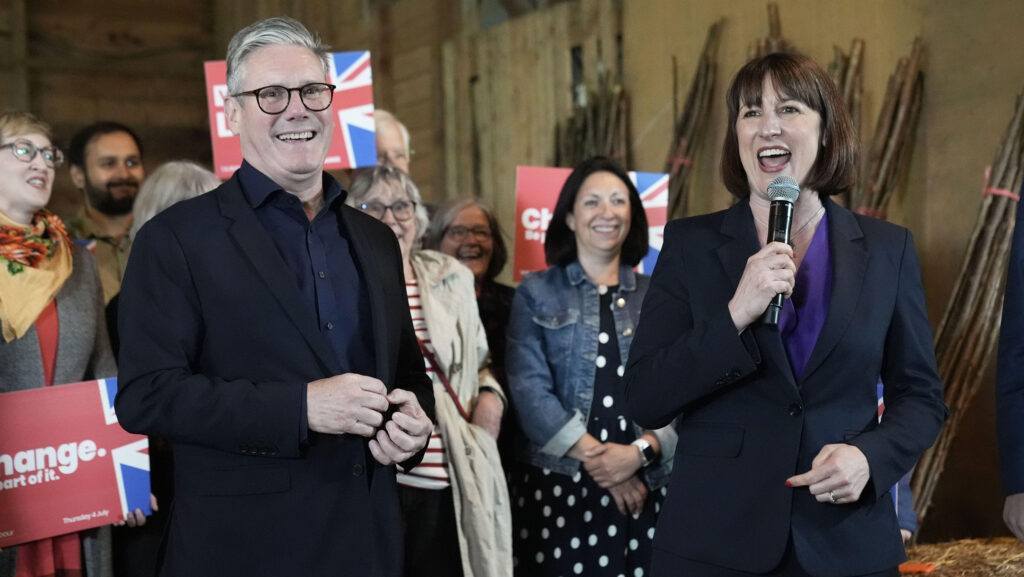Tips for farmers wanting to host new MP visits
 Sir Kier Starmer and chancellor Rachel Reeves on a recent farm visit © PA Images/Alamy Stock Photo
Sir Kier Starmer and chancellor Rachel Reeves on a recent farm visit © PA Images/Alamy Stock Photo Hosting an on-farm visit is one of the best ways to build a meaningful, long-term relationship with your local MP.
With a Labour government in place for the first time in 14 years, both the NFU and the Country Land and Business Association (CLA) agree there is a great opportunity for farmers to host MPs on farm and get the message across about local and national issues affecting them.
Of the 650 MPs elected on 4 July, more than half (335) are new to the job. Many have little knowledge of, or first-hand experience of, how the farming sector works.
See also: Meet the new crop of MPs representing rural areas
NFU head of external affairs Scott Pepe said: “There is no substitute for getting decision makers out on farm.”
Farmers who are interested in hosting an MP visit can get help from their local NFU team or the CLA.
The NFU has also published a mini guide for farmers (see panel below).
A suggested plan could be a farm walk, followed by a kitchen table discussion, it says.
Prepare agenda
Organic egg producer Susie Macmillan, at Mac’s Farm in Ditchling, East Sussex, has hosted MPs and local councillors on numerous occasions.
She advises preparing an agenda and printing out a flier with relevant facts and figures for MPs to take away.
“We always have a really good walk around the farm and we cover all aspects of the business and any topics of concern,” she said.
“I think MPs should have a moral duty to go out and visit the farming community.
“We are all aware that the amount of food we are growing is less and less. That needs to be top of the agenda.”
Ms Macmillan always follows up a farm visit by sending the MPs an email including an invitation to visit the farm again in six months’ time.
Berkshire farmer Colin Rayner hosted Jack Rankin, the new Conservative MP for Windsor, at Berkyn Manor Farm, in Horton, on Saturday 13 July. Several local Conservative councillors were also invited.
“We took Mr Rankin, the councillors and their families on a tour of the farm on a tractor-trailer,” said Mr Rayner.
“We just opened the farm up and got our point across. I talked about the Sustainable Farming Incentive, food production and food security.
“Once you have got an MP on a trailer, you can grab their attention and talk to them for a good hour.”
Build understanding
Mr Rayner points out that MPs receive anywhere from 300 to 1,000 pieces of communication a week from residents and businesses looking for help on various issues.
He believes a face-to-face meeting on farm is a great way to build relationships.
“If you’ve got a problem, it is best if your local MP already knows you,” he said.
The CLA is also keen to hear from farmers who are prepared to open their farms this summer to engage with local MPs.
For more details, email Mike Sims at mike.sims@cla.org.uk or call 01264 358195.
NFU tips for hosting your local MP on farm
The NFU has published some guidance to help farmers preparing to host MPs on their farm.
- A suggested plan could be a farm walk, followed by a kitchen table discussion. It is also worth having a bad weather contingency plan, just in case.
- The website They Work For You can be a useful tool to understand your MP’s views and voting record in advance of the meeting.
- MPs and their staff will appreciate a written agenda ahead of the visit as this allows them to come prepared. It also increases the likelihood of them being able to come, as they often have calendars full of meetings and public appearances. Your local NFU team can help with this.
- On the day, farmers should think about the issues they want to tackle, including possible solutions and what they would like their MPs to do.
- Some suggested follow-up actions could include writing a letter to a specific minister, asking a parliamentary question, tabling a debate on a topic discussed on the visit, and arranging a follow-up farm visit.

